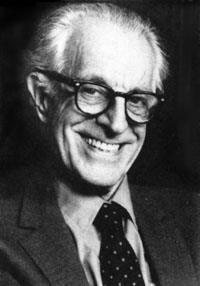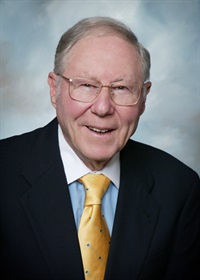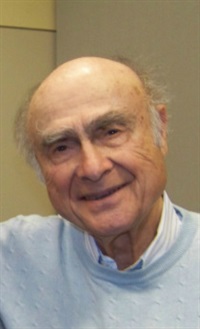EP95 Panel 07 - Essential Aspects of Psychotherapy - Stella Chess, MD; Albert Ellis, PhD; William Glasser, MD; Erving Polster, PhD
- Average Rating:
- Not yet rated
- Topic Areas:
- Topical Panels | Psychotherapy
- Categories:
- Evolution of Psychotherapy | Evolution of Psychotherapy 1995
- Faculty:
- Stella Chess, MD | Albert Ellis, PhD | William Glasser, MD | Erving Polster, PhD
- Duration:
- 52 Minutes
- Format:
- Audio Only
- Original Program Date:
- Dec 15, 1995
- License:
- Never Expires.
Description
Description:
Educational Objectives:
- To compare and contrast clinical and philosophical perspectives of experts.
*Sessions may be edited for content and to preserve confidentiality*
Credits
Faculty

Stella Chess, MD Related Seminars and Products
Stella Chess, MD, was a Full Professor in Child Psychiatry at the Department of Psychiatry, New York University Medical Center. She received her M.D. in 1939 from the New York University College of Medicine. Dr. Chess was a Fellow of the American Psychiatric Association and a Life Fellow of the American Orthopsychiatric Association. She has served on a number of editorial boards of prestigious journals; has received a number of research grants; and has been awarded distinguished honors from professional organizations and governmental agencies. Dr. Chess has authored, edited, or co-authored 16 professional books and 150 articles and chapters. She is renowned for her contributions to child psychiatry, especially in the study of temperament.

Albert Ellis, PhD Related Seminars and Products
Albert Ellis, PhD, was an American psychologist who in 1955 developed Rational Emotive Behavior Therapy (REBT). He held M.A. and Ph.D. degrees in clinical psychology from Columbia University and American Board of Professional Psychology (ABPP). He also founded and was the President of the New York City-based Albert Ellis Institute for decades.
He is generally considered to be one of the originators of the cognitive revolutionary paradigm shift in psychotherapy and one of the founders of cognitive-behavioral therapies.[2]
Based on a 1982 professional survey of US and Canadian psychologists, he was considered as the second most influential psychotherapist in history (Carl Rogers ranked first in the survey; Sigmund Freud was ranked third).[3][4] Psychology Today noted, "No individual—not even Freud himself—has had a greater impact on modern psychotherapy."[5]

William Glasser, MD Related Seminars and Products
William Glasser, MD, who received his MD degress in 1953 from Case Western Reserve University was an American psychiatrist. William was awarded an honorary doctorate in human letters by the University of San Francisco. Founder and Director of the Institute for Reality Therapy, he was authoer and editor of ten books on the topics of reality therapy and education. He was also the developer of Choice Theory. His ideas, which focus on personal choice, personal responsibility and personal transformation, are considered controversial by mainstream psychiatrists, who focus instead on classifying psychiatric syndromes as "illnesses", and who often prescribe psychotropic medications to treat mental disorders.

Erving Polster, PhD Related Seminars and Products
Erving Polster, Ph.D in clinical psychology, is the Director of The Gestalt Institute of San Diego, and the author of several important books, including Gestalt Therapy Integrated, Every Person's Life is Worth a Novel, and From the Radical Center: The Heart of Gestalt Therapy, as well as dozens of articles and chapters. Erving has authored 6 books. In his current writings, he offers perspectives and designs for a communal application of psychotherapy principles. He also describes and celebrates a powerful contemporary momentum for people-at-large to join together in the search for personal and social enlightenment.


